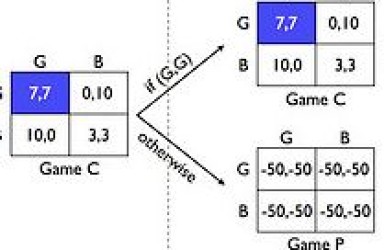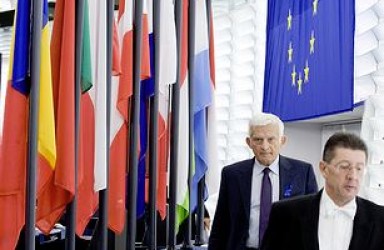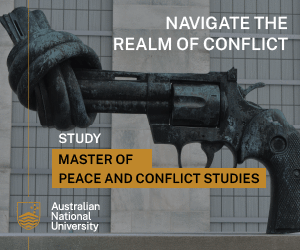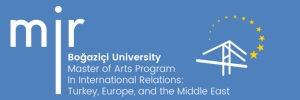Yin or Yang? China and the Muslim world
In its autonomous region of Xinjiang China will decide upon its lasting and largely irreversible geopolitical trademark in entering the Global Balkans. Though it is narrow, the window of opportunity exists for China to take a credible leadership for regional peace and secure stable confidence.
Absolute and Relative Gains in the Real World
The real world is too complicated to be explained by absolute or relative gains alone. Both theories treat states as rational and unitary actors. Due to the diversity of interests, it is not easy to define a unitary national interest in some issues. Consequently, gains per se sometimes cannot be clearly stated.
The European Court of Justice: An Agent of Member States?
When they created the ECJ, the intentions of member states were to create a court which did not underestimate national sovereignty or national interest. However, the ECJ transformed the EU legal system, eventually blocking member state control over the ECJ.
Has the war on terror been an appropriate response to terrorism?
Terrorism has existed for centuries as a way of creating disruption and fear. Yet, to declare a war against it has created numerous questions as to how to fight this multifaceted idea. Individual groups do indeed hold ideological stances, just as legitimate political parties do, but to brand all terrorism and terrorists as the same would be incorrect.
Nuclear Strategy and Deterrence: An Attempt to Rationalise the Irrational?
Nuclear strategy developed as a means to create a rational framework of deterrence for the seemingly irrational nature of nuclear war. Rational individuals may only be so when they exist in a rational context. Once placed in an irrational situation, it is questionable as to whether a person, or on organisation could continue to act in a rational manner.
A critical evaluation of the Lisbon Treaty
The Treaty of Lisbon is not a major step in advancing the institutional interests of the EU, but some of the new institutional arrangements and the ambiguities central to its main provisions have the potential to shift the process of European integration from formal treaties towards informal evolution of competences.
Issues in the association of women with peace activism
Women’s roles in working towards peace have become increasingly celebrated. The core issue with the association of women with peace activism is that it raises, and reinforces, gendered norms, through the assumptions of what it means to be a woman. In academic literature, these assumptions of Maternalism and Essentialism deny women agency.
US Foreign Policy in Europe beween the end of the Cold War and 9/11
The American-Russian relationship is best described as going from Cold War to Cold Peace, as articulated by the then Russian President Yeltsin. The 1990s essentially brought about a period in which the US sought to manage the uncertainties that the new world order was presenting.
US Navy and Chinese Navy: Partners or Rivals?
Because of the deep mutual mistrust from both sides, especially the US concern over China’s military build-up, friction and cooperation will coexist in the development of the China-US naval relationship. Only when political mutual trust reaches a high level, can the military relationship stride forward beyond the stop and go cycle of the last 30 years.
Ending the Odyssey: A Necessary if Imperfect Proposal for Restoring the Peace in Libya
While the lessons of the Libyan crisis for international relations are many, the most important lesson is the need to change the way that humanitarian interventions are conducted, as the violence experienced by civilians since the foreign intervention has increased substantially.














